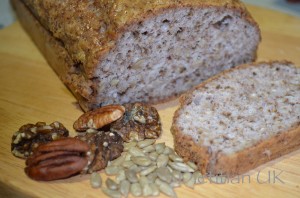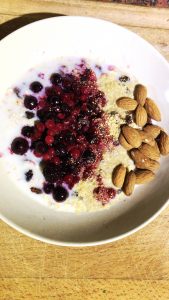Fibre is one of the lesser talked about nutrients and yet so vitally important for our bodies. A recent summary of the scientific literature on fibre has shown just how key It is to eat a high-fibre diet. Learn more about what fibre is here.
The research:
185 studies and 58 clinical trials were reviewed, this was a total of 4635 people! So we are talking big numbers and not a one off study. This means we can put more trust in this research and it is significant.
So what is this compelling evidence of fibre on health?
The research shows us that eating at 25g to 29 g of fibre day can lead to a 15-30% decrease in all cause death. Eaitng more fibre led to13 fewer deaths per 1000 people and 6 fewer cases of heart disease per 1000 people.
Overall there was a 16 to 24% reduction of heart disease, stroke, Type II diabetes, and colorectal cancer. So we’re talking about up to a quarter reduction in your risk of these diseases just by eating more fibre.
Eating 8 g more of fibre per day had significant reductions in the incidence of these diseases and in the number of total deaths.

What are we eating now?
When we look at what the current UK population is eating only 9% of us are meeting the fibre recommendations of 30 g a day. Average fibre intake for UK adults is 19g/day according to the National Diet and Nutrition Survey (2018).
So why are we not meeting the recommedations? Is is even achievable to eat 30 g of fibre a day.
The advent of clean eating, low carb diets and dieting means carbohydrates have been given a bad name. However the wholegrain versions of these foods provide us with plenty of fibre. There are other foods that provide fibre too – nuts, seeds, beans, pulses and of course fruits and veggies.
I think it is achievable to meet the 30g a day, here is an example day for you:
Porridge with berries and almonds for breakfast.
A baked potato including the skin with salad and an apple.
Baked salmon with whole-grain rice and two portions of vegetables.
A banana with yoghurt and some seeds.

Of course some people may struggle with eating a high fibre diet and with all of these things it is not a one-size fits all approach and a balance is key. For medical conditions, the general nutrition advice may need to be tailored to your needs and that is absolutely ok. So if you cannot eat a high fibre diet do not panic, just focus on eating the foods you know nourish your body. If you need help with this do seek out a registered dietitian/nutritionist who knows their stuff!